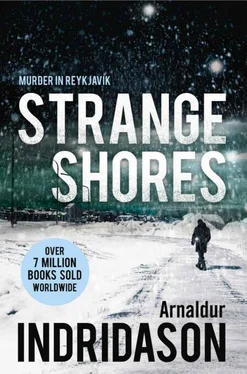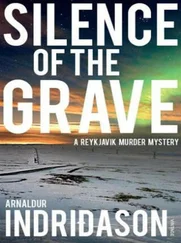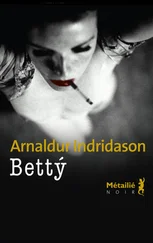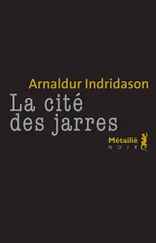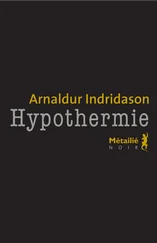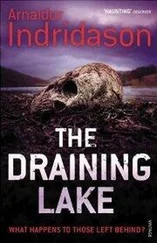Arnaldur Indridason - Strange Shores
Здесь есть возможность читать онлайн «Arnaldur Indridason - Strange Shores» весь текст электронной книги совершенно бесплатно (целиком полную версию без сокращений). В некоторых случаях можно слушать аудио, скачать через торрент в формате fb2 и присутствует краткое содержание. Год выпуска: 2013, Издательство: Random House, Жанр: Полицейский детектив, на английском языке. Описание произведения, (предисловие) а так же отзывы посетителей доступны на портале библиотеки ЛибКат.
- Название:Strange Shores
- Автор:
- Издательство:Random House
- Жанр:
- Год:2013
- ISBN:нет данных
- Рейтинг книги:4 / 5. Голосов: 1
-
Избранное:Добавить в избранное
- Отзывы:
-
Ваша оценка:
- 80
- 1
- 2
- 3
- 4
- 5
Strange Shores: краткое содержание, описание и аннотация
Предлагаем к чтению аннотацию, описание, краткое содержание или предисловие (зависит от того, что написал сам автор книги «Strange Shores»). Если вы не нашли необходимую информацию о книге — напишите в комментариях, мы постараемся отыскать её.
Strange Shores — читать онлайн бесплатно полную книгу (весь текст) целиком
Ниже представлен текст книги, разбитый по страницам. Система сохранения места последней прочитанной страницы, позволяет с удобством читать онлайн бесплатно книгу «Strange Shores», без необходимости каждый раз заново искать на чём Вы остановились. Поставьте закладку, и сможете в любой момент перейти на страницу, на которой закончили чтение.
Интервал:
Закладка:
‘Plenty of people have heard of the British soldiers but not many remember Matthildur nowadays,’ said Bóas, walking ahead of Erlendur with the fox nodding over his shoulder. ‘She disappeared in the same storm. According to her husband, she was planning to hike over to Reydarfjördur on the same path as the soldiers, via the pass. It was a route she’d taken before. But when they asked the British if they’d seen her, they swore they hadn’t.’
‘Shouldn’t they have run into each other?’ asked Erlendur.
‘They were in the same area at the same time, caught up in the same storm. And they were approaching from opposite directions, so by rights they should have met. Then again they were busy fighting for their lives, so maybe they missed her. The soldiers were all accounted for in the end but no trace of Matthildur was ever found. A search party was sent out when they discovered she hadn’t arrived in Reydarfjördur. But that was later.’
‘What did her husband have to say?’
‘Just that her mother lived in Reydarfjördur and Matthildur had decided to visit her by a path she reckoned she knew. He said he’d tried to dissuade her but she’d been adamant. The way he described it, you’d have thought she was fated to go.’
‘Why didn’t he go with her?’
‘I don’t know. But he told people where she was headed before the news broke about the British soldiers. He wasn’t aware they were in the same area.’
‘Did he say she’d gone missing?’
‘No, just that she’d set out on the journey.’
‘Is that significant?’
‘Like I said, you’d have expected the soldiers to have run into her or at least seen her, though of course visibility may have been too poor. But when people asked her family in Reydarfjördur if they’d been expecting her, they had no idea she was planning a visit, either then or at any other time.’
‘Why didn’t she go by boat or car?’ asked Erlendur. ‘There was a perfectly good road between Eskifjördur and Reydarfjördur by then.’
‘She wanted to walk. Apparently she’d been talking for some time about making the trip. The British too; they were bored and the expedition was meant to liven things up during a quiet period. They didn’t have any particular business in Eskifjördur, but it’s a beautiful walk in good weather, as you’ll know. And there was nothing to suggest a storm was brewing.’
‘So she’d mentioned her plans to her husband?’
‘Yes.’
‘Did she discuss it with anyone else?’
‘I don’t know. I doubt it.’
They gazed down at the village slumbering by the peaceful fjord.
‘What do you think happened then?’ asked Erlendur.
‘Search me,’ said Bóas. ‘I haven’t the foggiest.’
After Erlendur had knocked several times and waited in vain for the woman in the window to answer, he opened the door and walked in uninvited. He didn’t know why she had failed to respond but it occurred to him that she might be incapacitated somehow. He found the door to the sitting room. The woman had not moved from her post by the window and when he greeted her, she didn’t answer, merely continued to contemplate the view.
He moved closer and said good day again, at which she turned her head and glared up at him, looking outraged.
‘I didn’t invite you in.’
‘I’m sorry,’ he said. ‘I should have rung beforehand to let you know I was coming.’
‘What do you want?’
‘I’m sorry, I’ll leave.’
The woman perching on the cushion was tiny and grey-haired; around eighty, he guessed, with piercing eyes that were now fixed sharply on him. She was holding a pair of binoculars. He thought he had gone too far; he shouldn’t have barged in like that. He had no business intruding on people’s private lives. When she didn’t answer the door he should have left her to her own devices.
‘I have no intention of selling this house,’ she announced. ‘I’ve told you people a thousand times. A thousand times. I’m not going to be packed off to a nursing home and I’m utterly opposed to these developments. You lot can just clear off back to Reykjavík and take all your rubbish with you! I want nothing to do with aluminium barons!’
He paused in the doorway. ‘But I don’t want to buy your house. I’m not involved with the smelter.’
‘Oh. Who are you then?’
‘I wanted to talk to you about your sister, Matthildur — the one who died.’
The woman studied him. She obviously hadn’t heard the name for years and couldn’t hide her astonishment that a complete stranger should have entered her house and asked about Matthildur.
‘We get no peace from Reykjavík hotshots wanting to buy everything up around here,’ she said at last. ‘I thought you were one of them.’
‘Well, I’m not.’
‘There’s no end to the strange goings-on these days.’
‘I can imagine.’
‘Who did you say you were?’ she asked.
‘I’m a police officer from Reykjavík. I’m on holiday and — ’
‘How do you know about my sister?’ the old woman interrupted.
‘I heard about her.’
‘How?’ she asked sharply.
‘When I was a child,’ said Erlendur, ‘and I was talking about her the other day with a fox-hunter I met on the moors. His name’s Bóas. I don’t know if you’re acquainted with him.’
‘I ought to be — I taught him when he was a lad. The naughtiest boy at the village school. But what’s Matthildur to you?’
‘As I said, I was told her story when I was young, so I asked Bóas about her and. .’
Erlendur didn’t know how to explain his long-standing fascination with the fate of this woman who had once lived near his home but had no other connection to him. After all, he was an outsider, no relation, and only ever came out east on flying visits, years apart. Although he had grown up here until his early teens, he didn’t know any of the locals, hadn’t kept in touch with anyone or come back until he was an adult. Whether he liked it or not, his life was in Reykjavík now.
Yet part of him would forever belong to this place, a witness to the helplessness of the individual when confronted by the pitiless forces of nature.
‘. . I’m interested in stories about ordeals in the wilderness,’ he finished bluntly.
5
The woman’s demeanour changed. She asked his name and he told her, saying he was just passing through, only stopping in the East Fjords for a few days. She shook his hand and introduced herself as Hrund. As he took in the view from the window, he realised that far from watching, let alone waiting for him, she had been spying on the progress of the enormous pylons that were being erected above the town to connect with the smelter further down the fjord. At her invitation, he sat down on an old sofa that creaked in protest, while she took a chair facing him, neat and, now that some kind of understanding had been established between them, inquisitive. He elaborated on his interest in accidents in the mountains, easing the conversation round to Matthildur’s disappearance in the great storm of January 1942, when the British servicemen had famously come to grief.
There had originally been four sisters, daughters of a couple who had moved to Reydarfjördur in the 1920s, fleeing a miserable living on a small croft in the northern district of Skagafjördur. Their father, who came of an East Fjords family, had taken over a relative’s smallholding, but according to Bóas he was a heavy drinker who made a mess of running the place and was killed in an accident some years after the move. His wife, left on her own with four daughters to support, had managed to turn around the fortunes of the farm with the help of her neighbours, married a local man and saw her daughters safely into adulthood. The two eldest had left, moving right across the country to Reykjavík, while Matthildur had married a fisherman from Eskifjördur, the neighbouring fjord. At the time she went missing they had been together for a couple of years but had no children. Hrund, the youngest of the sisters, had got hitched to a local and stayed on in Reydarfjördur.
Читать дальшеИнтервал:
Закладка:
Похожие книги на «Strange Shores»
Представляем Вашему вниманию похожие книги на «Strange Shores» списком для выбора. Мы отобрали схожую по названию и смыслу литературу в надежде предоставить читателям больше вариантов отыскать новые, интересные, ещё непрочитанные произведения.
Обсуждение, отзывы о книге «Strange Shores» и просто собственные мнения читателей. Оставьте ваши комментарии, напишите, что Вы думаете о произведении, его смысле или главных героях. Укажите что конкретно понравилось, а что нет, и почему Вы так считаете.
